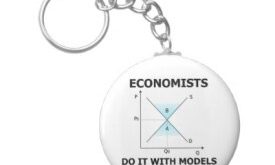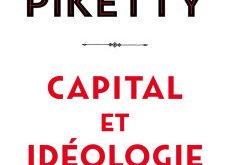Black Rock — The Wall Street Monster [embedded content]
Read More »Den svenska budgetpropositionen — fullständig idioti!
Den svenska budgetpropositionen — fullständig idioti! I den idag presenterade budgetpropositionen ligger prognosen för statsskulden på 15% av BNP fram till år 2022. Och den offentliga sektorns skuld beräknas falla till under 30% år 2022. Och detta samtidigt som tillväxten faller, arbetslösheten ökar och behovet av offentliga investeringar i infrastruktur, vård och utbildning är skriande. Man kan inte annat än ta sig för pannan! Och som om det inte var nog...
Read More »Ett sista glas (personal)
Ett sista glas (personal) År 2018 var — precis som de flesta år — ett år med både glädje och sorg. För mig kommer året ändå alltid att främst förknipppas med att det var året då min bäste vän sedan mer än trettio år — Bengt Nilsson — gick ur tiden. Inga ord kan riktigt beskriva vad man känner när en människa man älskat inte längre finns där. Man minns skratten, glädjen, omtanken, den mäktiga intelligensen, den drastiska humorn, och det starka sociala...
Read More »Nordhaus dangerous gamble for humanity’s future
Nordhaus dangerous gamble for humanity’s future Nordhaus’s transgressions are immense. His ‘damage function’ which he uses to estimate global warming damage is incorrect and uses data that has nothing to do with climate change. Despite this, the Intergovernmental Panel on Climate Change (IPCC) uses his model to advise governments about the economic impact of global warming. Nordhaus and other mainstream climate economists certainly have a lot to answer for....
Read More »Elmar Altvater In Memoriam
Elmar Altvater In Memoriam Elmar Altvater was a renowned political economist and professor at the Otto-Suhr-Institute of Freie Universität Berlin from 1970 until 2006. Until his death in 2018 he was a point of reference for several generations of students, left-wing academics and politicians, trade union activists, representatives of civil society organizations in Germany, across Europe and in Latin America. He became one of the few academics in Germany who...
Read More »Les marionnettes de Milton Friedman
Les marionnettes de Milton Friedman Alors le capitalisme est-il curable ? La primauté à l’actionnaire (shareholder primacy) n’est pas inscrite dans ses gènes. Elle a prospéré dans les années 1980, quand la mort annoncée du communisme a donné des ailes aux partisans d’une économie de marché débridée. « Cela a causé tant de tort au capitalisme que même Lénine n’aurait pas fait mieux », ironisait Felix Rohatyn, figure historique de la banque Lazard … Plus les...
Read More »Why policy design without theory is useless
Why policy design without theory is useless Taking into account the methodologies that support some policy practices that favour inductive reasoning and randomized control trials of impact evaluation (RCTs), there is a controversy around the utilization of these attempts to build experimental programmes or policy intervention … As the decision-making policy process in the real world relies on institutional factors that may be different elsewhere, the...
Read More »Facebook’s digital currency Libra — just for suckers or a global economic revolution?
Facebook’s digital currency Libra — just for suckers or a global economic revolution? Mit 20 Partnern hat Facebook die digitale Weltwährung “Libra” angekündigt … Mit einem Schlag kann das Konsortium alle nur denkbaren Netzwerkeffekte im digitalen Zahlungsbereich ausschöpfen. Damit ist Libra unmittelbar und überall präsent. Eine globale ökonomische Revolution. Die Digitalökonomie folgt der Regel “The winner takes it all”. Wer die Netzwerkeffekte auf seiner...
Read More »Do models make economics a science?
Do models make economics a science? Well, if we are to believe most mainstream economists, models are what make economics a science. In a Journal of Economic Literature review of Dani Rodrik’s Economics Rules, renowned game theorist Ariel Rubinstein discusses Rodrik’s justifications for the view that “models make economics a science.” Although Rubinstein has some doubts about those justifications — models are not indispensable for telling good stories or...
Read More »Capital et idéologie — le nouveau livre de Thomas Piketty
Capital et idéologie — le nouveau livre de Thomas Piketty Que trouve-t-on dans ce nouvel opus imposant de 1 200 pages ? Il faut revenir sur ce qui a fait le succès du livre précédent : le constat empirique de la dynamique des inégalités sur une longue période. Le propos est à la fois plus historique – on remonte jusqu’au XVIIIe siècle – et plus large, couvrant de nombreux pays européens, en particulier la France et le Royaume-Uni, mais aussi les Etats-Unis,...
Read More » Lars P. Syll
Lars P. Syll









